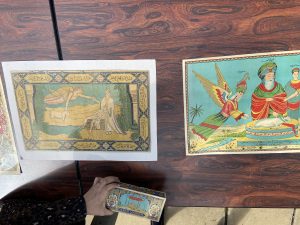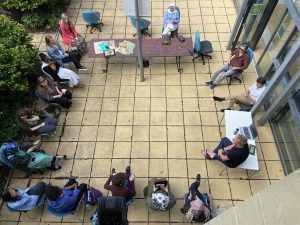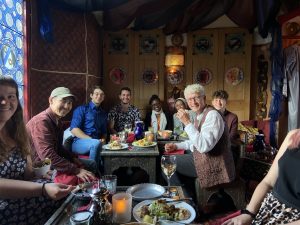The International Institute for Cultural Enquiry (IICE) is delighted to announce the successful awardees of our 2021-2022 Development Fund Grant, designed to support challenge-led, disruptive and innovative research rooted in the Humanities and Social Sciences using interdisciplinary and transdisciplinary approaches. IICE Development Grants facilitate and pump-prime large-scale humanities-led research geared towards addressing global, national or regional issues focussing on their cultural dimensions, and to nurture and develop socially conscious partnerships across these varying scales.
Our Development Fund will support a variety of exciting projects which explore vital subjects and methodological innovations, addressing, respectively: the cultural dimensions of translation, nation and migration; the modelling of live literary events as market disruptors to platform African literary production; the tracing of animal and human interactions within indigenous (and non-indigenous) ontologies; the archiving of marine ecosystems and ecological heritage; the understanding of decadence as political and cultural theory, and the networked transformation of the mining industry. Each project is truly interdisciplinary and collaborative at its core.
Successful projects demonstrated a particular commitment to partnership, research excellence, potential for meaningful growth and innovative methodologies. All projects will contribute to the overall goals of IICE: the development of world-leading interdisciplinary research with deep, real cultural resonance for wider public benefit.
Find out more about each of the successful projects below:
Tracking Animals Through Time: Biodiversity and Cultural Heritage
‘The earliest artistic representations created by humans were not depictions of people but of animals, or human-animal hybrids. For millennia, non-human animals have inspired human artists who have, together, created a deep-time iconographic record of human-animal-environment relationships reaching back to the Palaeolithic. Changing attitudes to the natural world and shifts in biodiversity are charted through this iconography, tracking where extinct species once lived, and where/when novel animal species appeared. Animal representations – in the form of rock art, wall paintings or even modern street signs – are therefore an important part of global bio-cultural heritage, while also providing vital information for the preservation of future biodiversity. However, this heritage is fragile and is coming under increasing threat from climate change, from cultural change, from the unintended consequences of international development and even from heritage managers themselves.
This pump-priming project brings together researchers from across the Arts-Humanities-Sciences spectrum to digitally record animal representations in 6 countries (Kazakhstan, Colombia, Norway, South Africa, Sudan and Namibia). The value of these iconographic records will be considered by an interdisciplinary, international team to investigate their fluctuating cultural significance.
By concentrating on the cultural and social dimensions of signs and symbols, and animal-human interactions within indigenous (and non-indigenous) ontologies, the following themes will be addressed: Human Rights and Global Justice; Transformative Creativity; Cultural Policy, Exchange, and Participation. The project will address complexities of biodiversity change and extinction, ‘green gentrification’, the mechanisation of climate change disaster relief for capitalist gain, reclamation of animals as a symbol of national identity and beyond, whilst simultaneously capturing and preserving digital records of animals and their iconographic depictions, which are as much a part of humanity’s heritage as Stonehenge or the Colosseum. The research will be truly interdisciplinary, truly global, and truly collaborative, leading to further large-scale and innovative projects and international partnerships.’
Dr Jamie Hampson – Heritage
Prof. Naomi Sykes – Archaeology
Prof. Alan Outram – Archaeology
Prof. Jose Iriarte – Archaeology
Dr Carly Ameen – Archaeology
Dr Rebekah Welton – Theology & Religion
Dr Angela Cassidy – Sociology, Philosophy & Anthropology
Dr Helen John – Theology & Religion
Dr Sean Doherty – Archaeology
Dr Mark Robinson – Archaeology
Dr Iwona J. Kozieradzka-Ogunmakin – Archaeology
Strandlines: Creating Cultural Archives of the Marine Environment
‘The ultimate objective of the ‘Strandlines’ project is to establish an Open Access archive of cultural artefacts (documentary, interview, material) relating to Britain’s marine environment, with particular attention to the South West region, and the people who live and work within it. Its long-term objective is to provide a permanent, open-source, collection of qualitative data relating to the marine environment and the cultures, economies and histories circulating around it.
At the heart of this project is a firm commitment to the importance of cultural archives to our understanding of marine environmental change, and the wider social and political contexts in which that change takes place and it is understood. Beyond that, however, is the knowledge based in the empirical research of both collaborators of the potential future importance to a range of stakeholders of qualitative data and oral and written testimony in understanding the history of marine eco-systems. The concept of a cultural archive thus looks in multiple directions, potentially integrating the historical and biological sciences, while at the same time rethinking the uses of the past in the present and the future. Structurally, this will also be an outward-facing project that acknowledges the wider public importance of cultural archives and ecological heritage for coastal communities.
The ‘Strandlines’ project is intended from the outset to illustrate, and develop, the value of cultural and historical archives to work both within the ecological science and marine policy sectors and to local communities and cultural organisations. Both applicants are firm believers in the necessity and value of culturally informed approaches to understanding change in coastal economies and cultures, as well as the vital importance of environmental knowledge. The ‘Strandlines’ project will be co-led and will aim to speak across disciplines as it continues to evolve, developing not only resources, but asking new questions that can meaningfully integrate interdisciplinary perspectives around the cultural milieu of marine environments. ‘
Dr Timothy Cooper – History
Dr Ruth Thurstan – Biosciences
The Politics of Decadence
‘The complex of ideas associated with ‘decadence’ has a long history, from classical Greece and Rome to contemporary far-right groups. Decadence, understood as the deleterious effects of time and processes of change on an object, has obvious implications for politics and political thought. The possibility of decay in the frameworks of communal life, whether the state, society, nation, or civilization, has represented both a source of anxiety and a theoretical problem since the development of self-conscious political analysis in classical antiquity.
This project is innovative: it will take decadence seriously as a political and cultural theory rather than treating it just as a rhetorical trope or aesthetic concept, developing an explicit theoretical framework and then applying this to the transhistorical and comparative study of political thought and rhetoric over a 2500 year period, considering not only the European tradition but similar lines of thought in other cultures.
This enterprise would be impossible without collaborative inter- and multi-disciplinary research, not only bringing together the different heuristic approaches of the history of ideas, political theory, literary studies and classical reception but also drawing on social psychology to explore the appeal of such cultural concepts empirically. The project aims not only to analyse and interpret decadence as a historical phenomenon but to address the pressing issue of its deployment as a trope in right-wing rhetoric and populist movements across the globe and the nature of its appeal. The project will involve collaborative work with non-academic groups to develop the impact of its findings. ‘
Prof. Neville Morley – Classics and Ancient History
Dr Kate Hext – English
Dr Joseph Sweetman – Psychology
Africa Writes – Exeter 2022: Networks & Exchanges
‘This project explores the ways in which live literature events can generate new audiences and markets for African literary production, as well as enabling new creative productions and collaborations. Kate Wallis and Malcolm Richards will work together to curate and produce an Africa Writes – Exeter festival weekend in February 2022, which will combine digital, physical and hybrid events, and place particular emphasis on modelling and better understanding the creative exchanges enabled through live literature events and engaging young people (aged 16 to 24) in conversations around African literary production. It employs innovative interdisciplinary methodologies to disrupt the historic unequal power structures of global/postcolonial cultural production and engagement and create increased visibility and opportunities for African and African diaspora creatives. As such, it is a strong fit with IICE’s commitment to challenge-led research that works through regional, national, and international collaboration, and towards social justice.
Wallis and Richards began working together in 2020 through the Exeter Decolonising Network (EDN), and through the Education Incubator project ‘Decolonial Knowledge Production and Anti-Racist Pedagogies: Building a Cross-Disciplinary Community of Practice’ co-produced with Student Fellows a series of events, workshops, publications and a film. Out of this initial collaboration, they began collaborating to explore shared interests in conversations and engagement around African and African diaspora literary production, co-producing the launch of Louisa Adjoa Parker’s poetry collection She Can Still Sing and a series of workshops around nature writing aimed at young people in Exeter and Kigali. Africa Writes would enable a more sustained and robust development of this organically evolved collaborative working practice.
This project forms part of the larger research project ‘African Literary Production: Networks and Exchanges,’ an anchor project for Exeter’s City of Literature programme which aims to expand creative writing and creative industry connections between south-West England and the African continent. Working together in this way towards Africa Writes – Exeter’s first physical and hybrid events, allows experimentation with novel approaches to staging and reflecting on creative conversations around African literary production, drawing on research expertise from beyond literary studies, publishing studies, language and linguistic forms, and embedding decolonial methodologies, dialogic theories and education in this project. Beyond employing innovative interdisciplinary methodologies, but as a part of its co-collaboration, Africa Writes will engage with methodologies that are rooted in communities; in the works of experts from across the continent of Africa, and across the diaspora community. Through such a broad community approach, it is hoped that emergent, established and to-be-imagined methodologies can be applied. This work is intended to catalyse a larger research collaboration that builds out of this live event and project– modelling the relationality between live literature events, creative production, and literary engagement. ‘
Dr Kate Wallis – English and Film
Malcolm Richards – Graduate School of Education
People and Mining Network
‘This project examines how mining connects disparate people, issues, politics, and economies across the globe. To keep within 2°C of warming, the world is increasingly turning to Green Technologies such as wind turbines, solar panels, and electric vehicles. These technologies fuelling the race to Net Zero are heavily reliant on raw materials sourced from mining, generating unprecedented demand. As a society, we are now faced with the problem of how the materials needed to decarbonise can be sourced responsibly.
Mining is interwoven with human, political, cultural, and environmental challenges from a global to individual scale. The largest of these is widely regarded as mining’s social and cultural relationships. Predominantly, tackling these issues, and learning from best practice, happens in silos. This perpetuates difficulties with communicating between disciplines and precludes creative or disruptive responses and learning. Mining operations present complex, multi-scalar challenges impacting the environment, politics, economy and health and livelihoods of people affected by it. Understanding and responding to these challenges needs much greater interdisciplinary collaboration and connection between academics and practitioners.
People and Mining seeks to create space for such conversations, and between 2018 and 2020 ran monthly interdisciplinary research seminars on the Penryn campus. At a UK level raw materials are rising up the policy agenda with a recent debate in Parliament on critical mineral supply chains, and the potential for the UK to lead discussion on responsible mineral sourcing at COP26 meetings later this year. Now launched as a digital space it consolidates partnership between Camborne School of Mines and Politics Penryn alongside an external partner and international development non-profit organisation Pact (Pact Global UK CiO) and their Mines to Markets programme.
This research network is a first of its kind in this sphere, and is an inclusive and accessible space for academics, practitioners, policymakers, and students to engage with state-of-the-art research and debate in an international forum. People and Mining is a unique, interdisciplinary, and trailblazing platform within the mining space that creates space to remove the entrenched silos, welcoming all voices and developing regional, national, and international partnerships with participants and partners from Europe, The Americas, Asia, and Africa, spanning Academia, Industry and Development. With these participants and partnerships, People and Mining will facilitate wide-ranging, pertinent conversations, needed to bring a much-needed transformation of the mining industry and its social and cultural relationships. Such collaboration is the only way to tackle pressing human and environmental challenges associated with natural research extraction .’
Dr Deborah McFarlane – Politics
Katie Smith – Cambourne School of Mines
Mr Rowan Halkes – Mining
Prof. Patrick Foster – Geology and Mining
Frances Well – Cambourne School of Mines
Translation, Nation, Migration
‘Translation, nation, migration brings together researchers from History, Modern Languages, English and Film Studies, Anthropology, Classics, and Drama, at Exeter, and at a range of European institutions, including KU Leuven, Namur, Liege, Leiden, Geneva, NUI Galway, and Cambridge. Using innovative methodologies from across the Humanities, we seek to explore the cultural dimensions of translation, broadly conceived, both in its historical contexts and in contemporary society. In its transnational, transdisciplinary approach, the project approaches translation as a form of migration and a product of the movement of people, texts, and objects, with the potential to relate to the experiences of marginalised groups facing the challenges associated with migration in contemporary society.
Our project has cultural enquiry at its heart: we aim to illuminate further the cultures of the past, and the experiences of past peoples; we also seek to connect this work with the cultures and experiences of the present and future, through creative cultural practices and an exploration of people’s experience (lived and performed) of the relationship between language, migration, and identity. We trace not only the development of ‘difference’ and the connection between vernacular language and cultural identity but think more widely about shared heritage (European and its Global relations; Classical, in its broadest sense) and seek to find ways to use this understanding to unite social groups through the arts and creative industries.
This project is founded in interdisciplinary research into translation in the medieval and early modern periods: translation between languages, across space and time, and from one form or medium to another. We are working to achieve a deeper understanding of how translation helped construct identities – regional, national, or proto-national, ethnic, linguistic, and supra-national – and the ways in linguistic and literary translations reflected the migration of people, objects, and texts around the European continent and beyond.
We also hope to bring this historically focused research into dialogue with the contemporary challenges posed by migration and the polarising effects of identity politics. We aim to use humanities-based approaches to develop practical ways to respond to these challenges, and to disrupt the traditional model of humanities public engagement, by using our engagement activities to shape our ongoing research agenda. ’
Dr Freyja Cox Jensen – History
Dr Helena Taylor – Modern Languages and Cultures
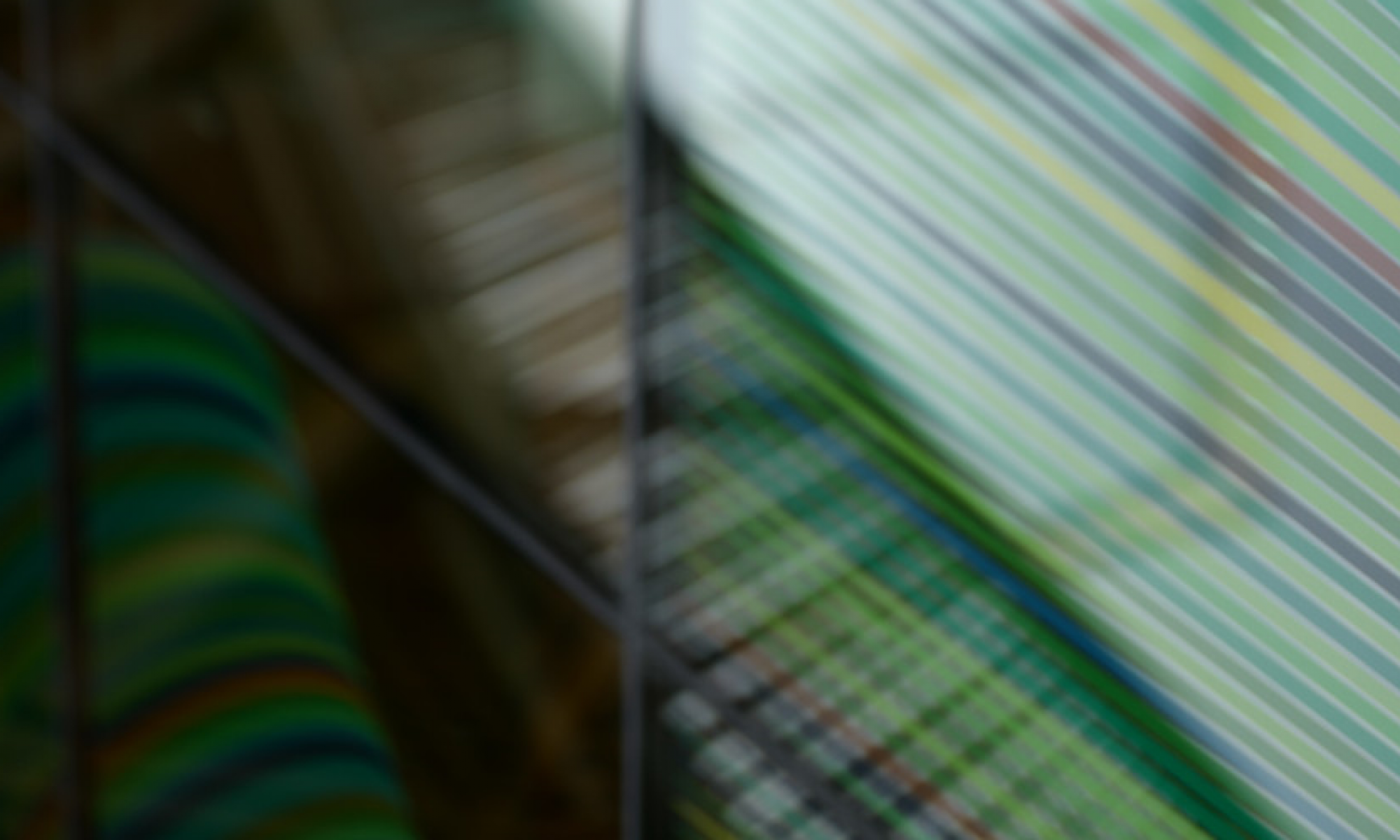
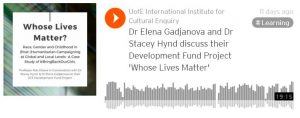
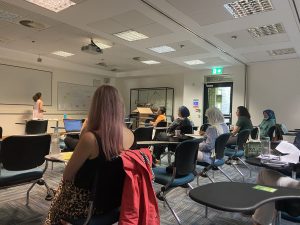 Speculative Methodologies explored speculation and wonderment as generative sites for decolonial praxis, considering processes of constructing methodologies in Black and decolonial studies and asking ‘How do we construct the subjects, contexts and questions of our research?.’ Drawing upon writings by Saidiya Hartman and AbdouMaliq Simone, the session created the space for considering “the minor” and “the uninhabitable” as spaces for speculation.
Speculative Methodologies explored speculation and wonderment as generative sites for decolonial praxis, considering processes of constructing methodologies in Black and decolonial studies and asking ‘How do we construct the subjects, contexts and questions of our research?.’ Drawing upon writings by Saidiya Hartman and AbdouMaliq Simone, the session created the space for considering “the minor” and “the uninhabitable” as spaces for speculation.